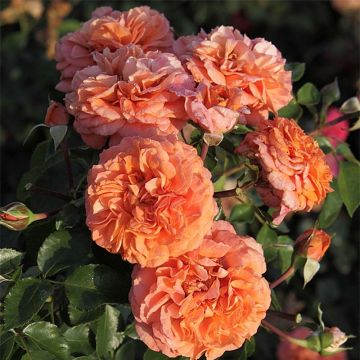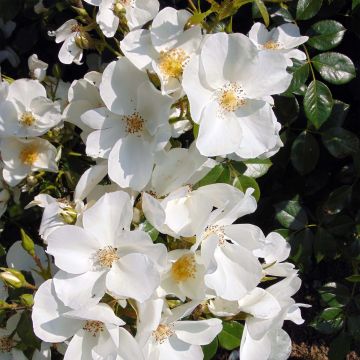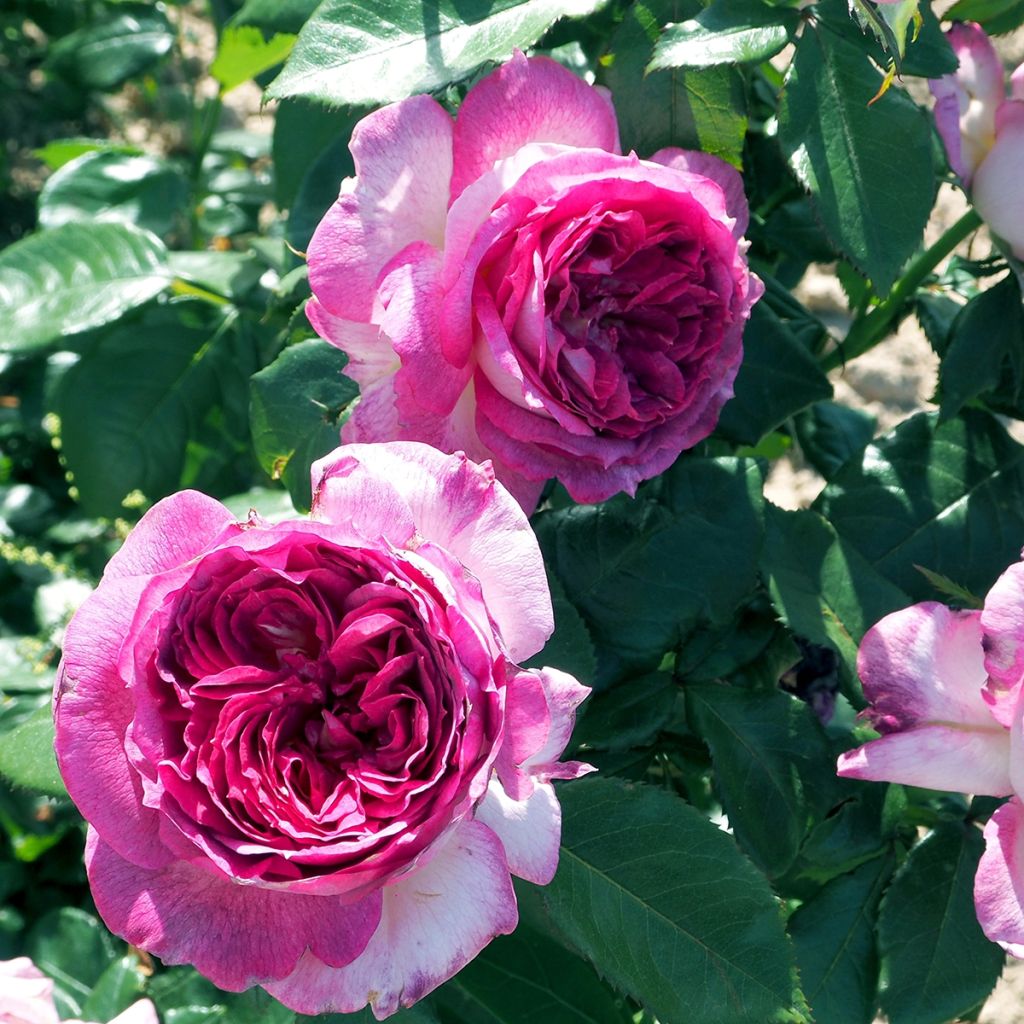

Rosa Thierry Marx
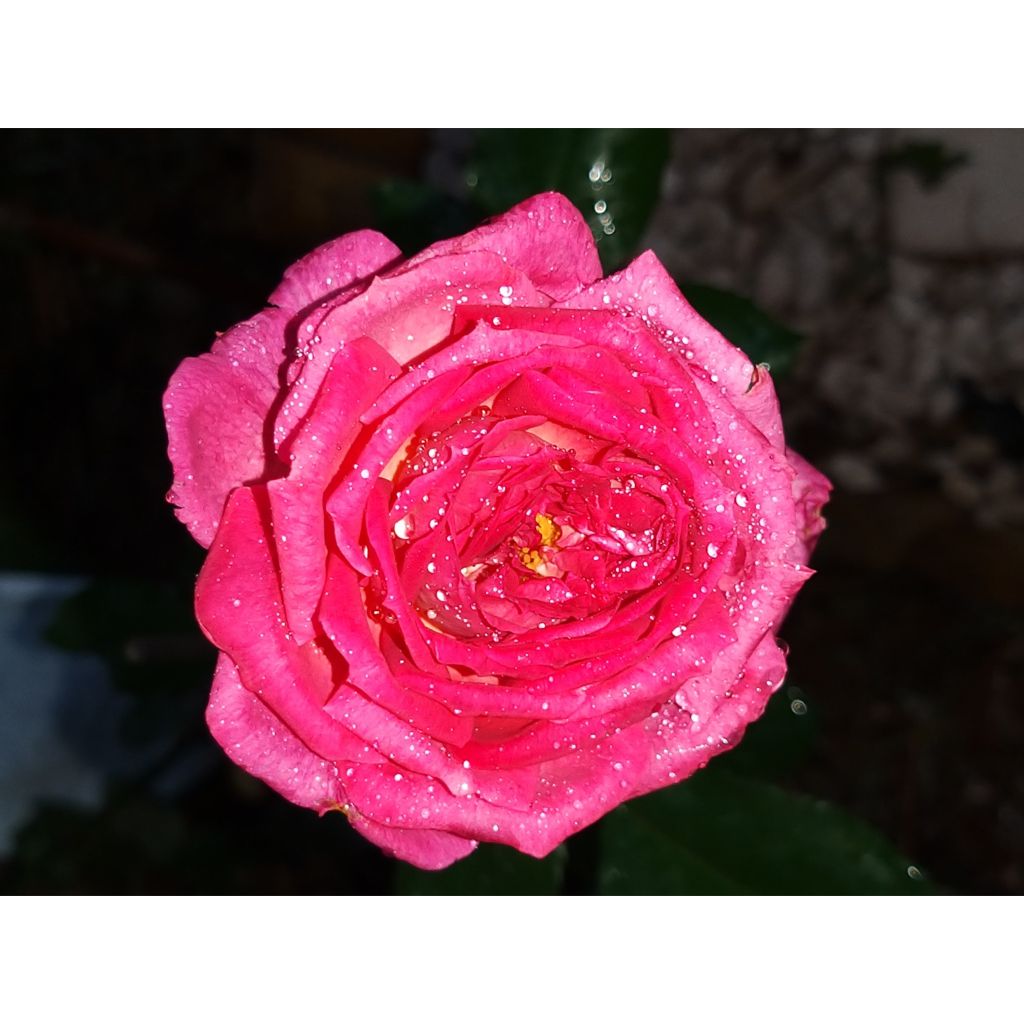

Rosa Thierry Marx
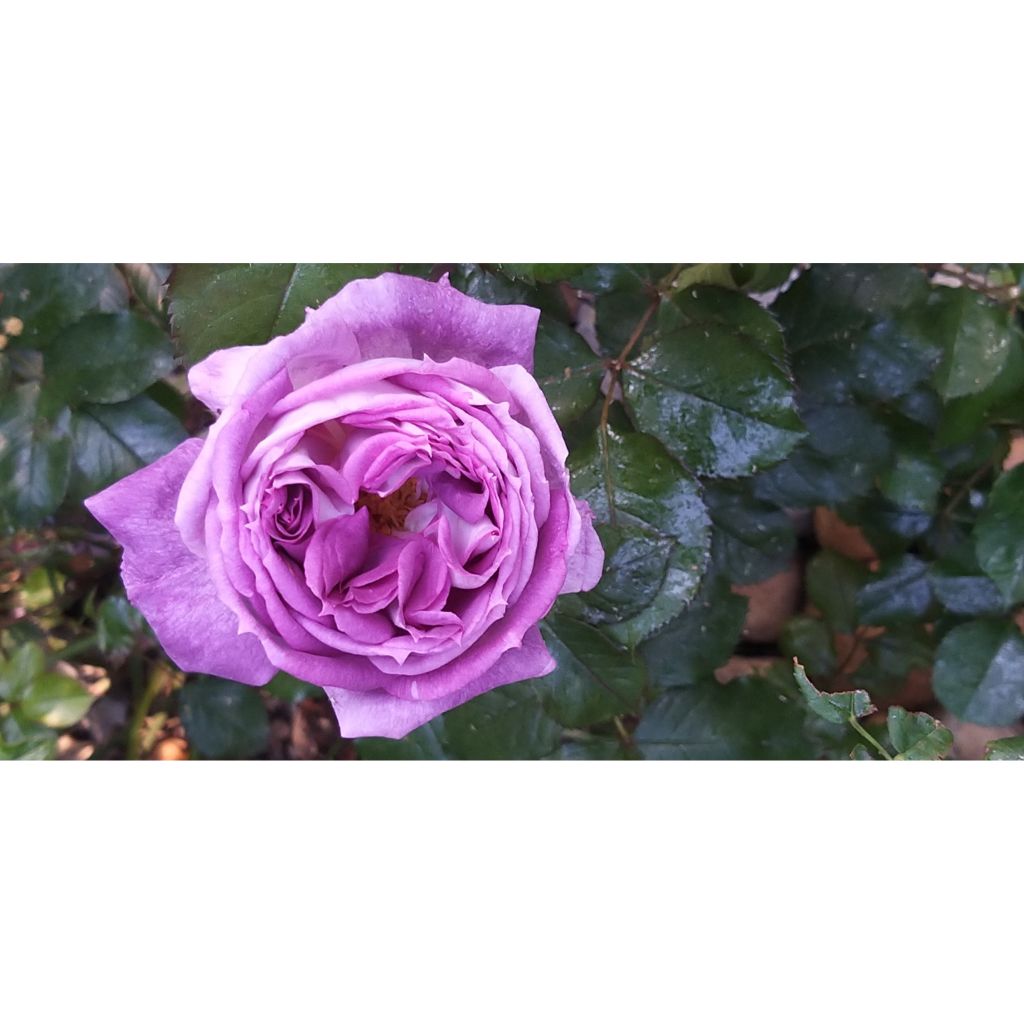

Rosa Thierry Marx
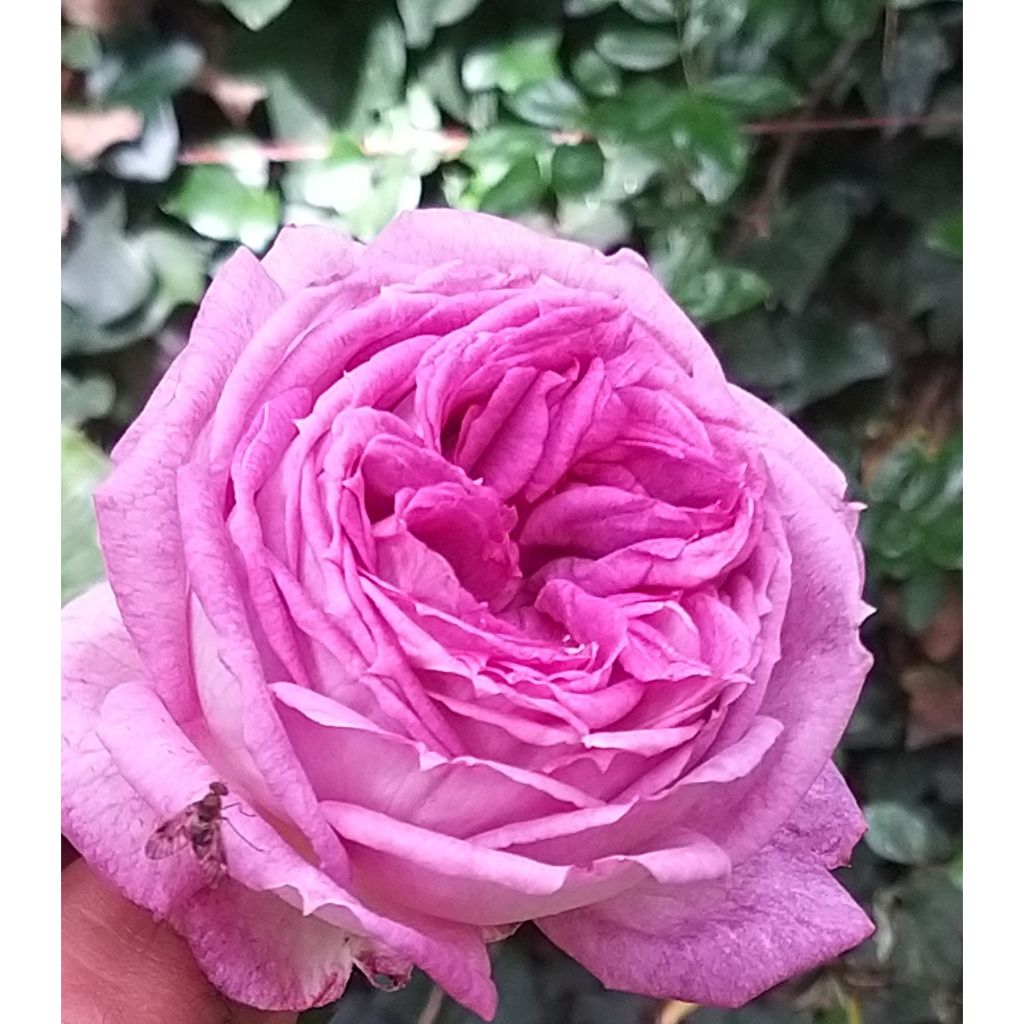

Rosa Thierry Marx
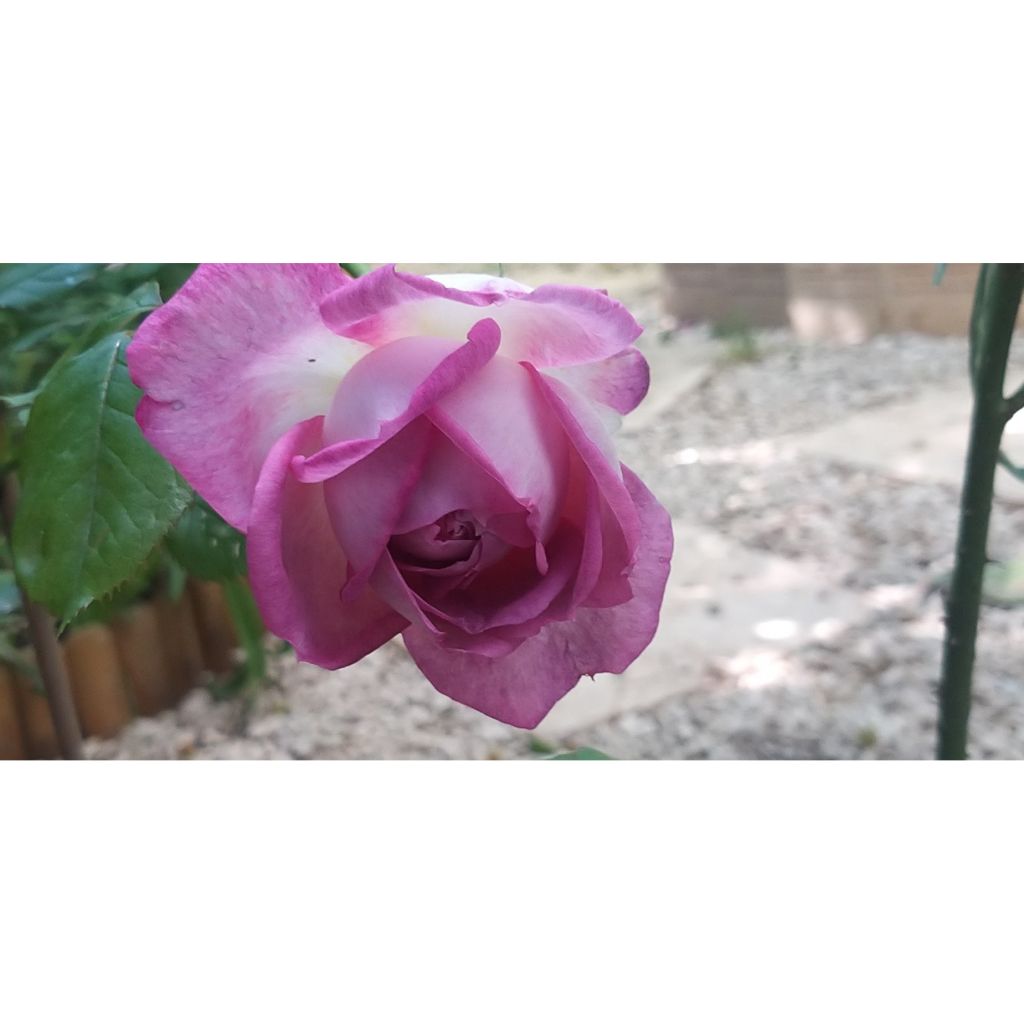

Rosa Thierry Marx
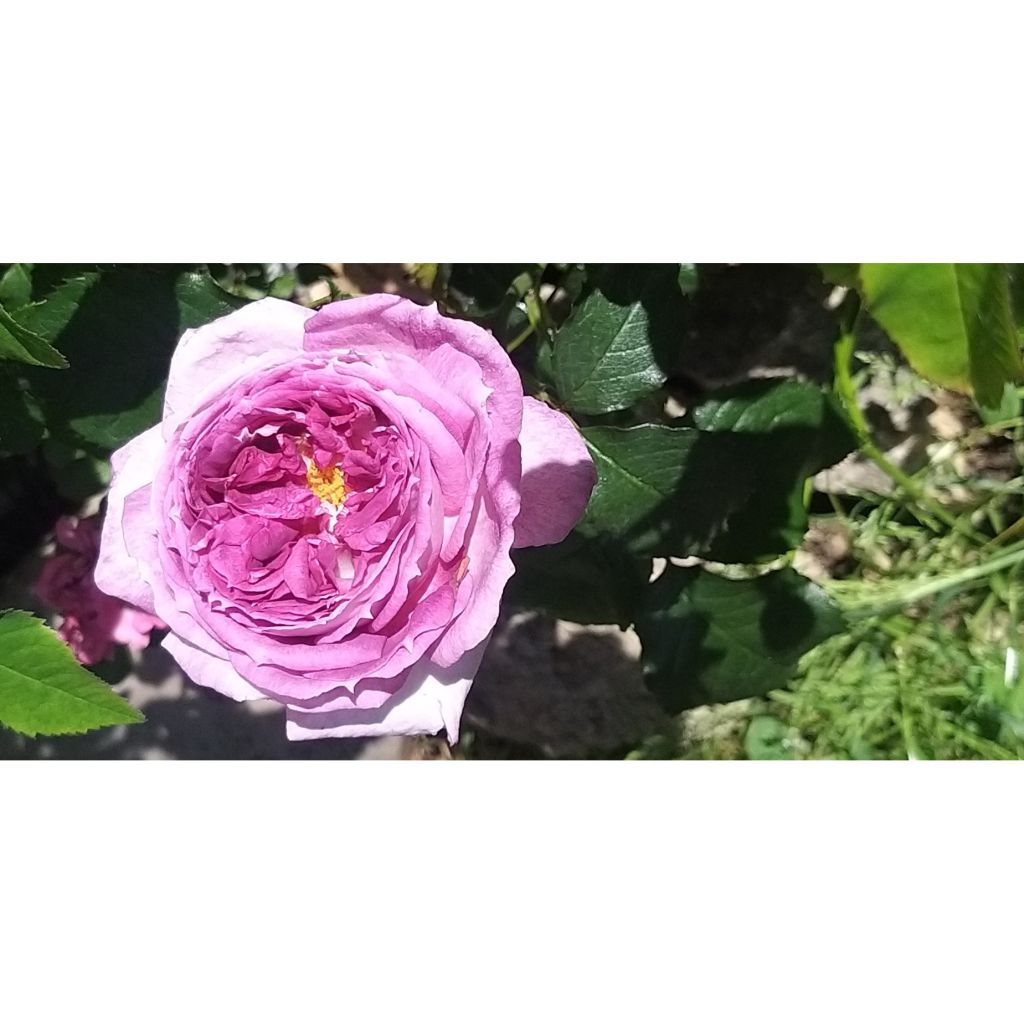

Rosa Thierry Marx
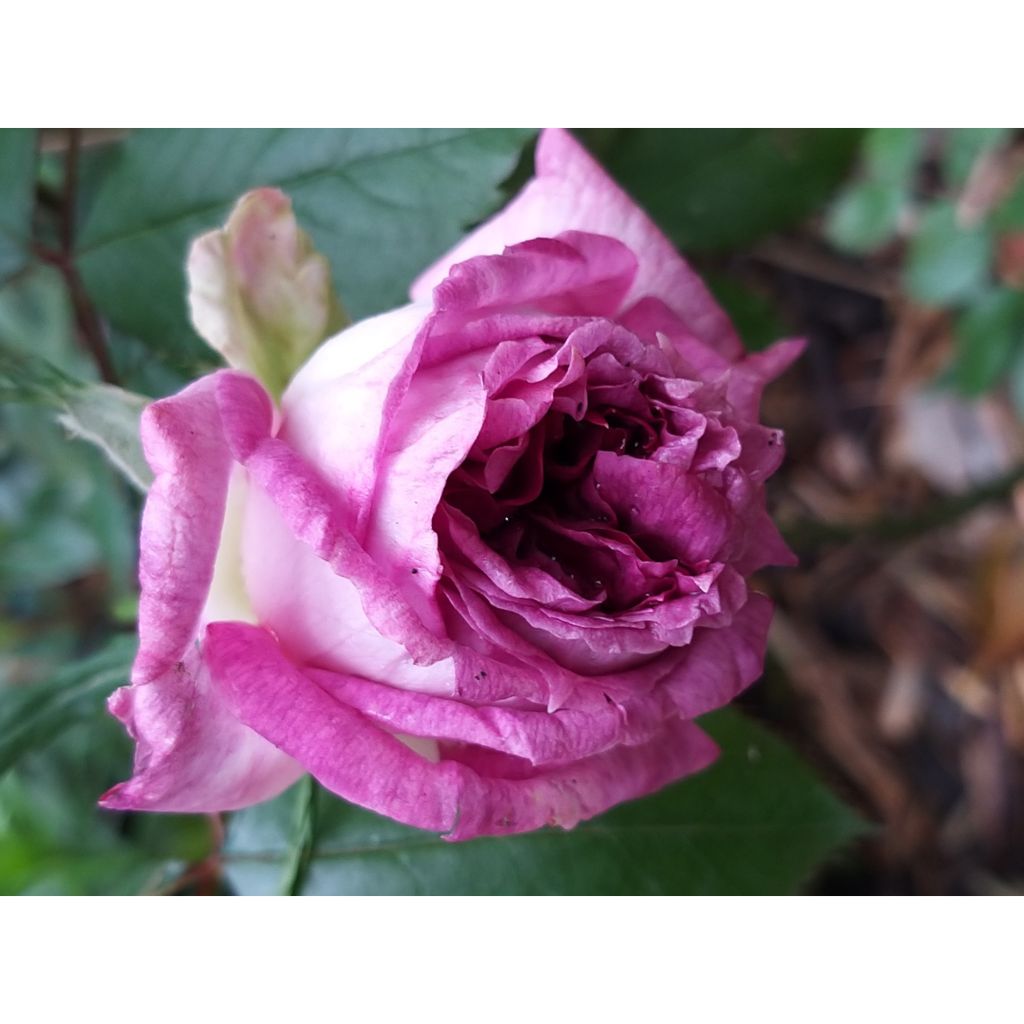

Rosa Thierry Marx
View more pictures
Hide images
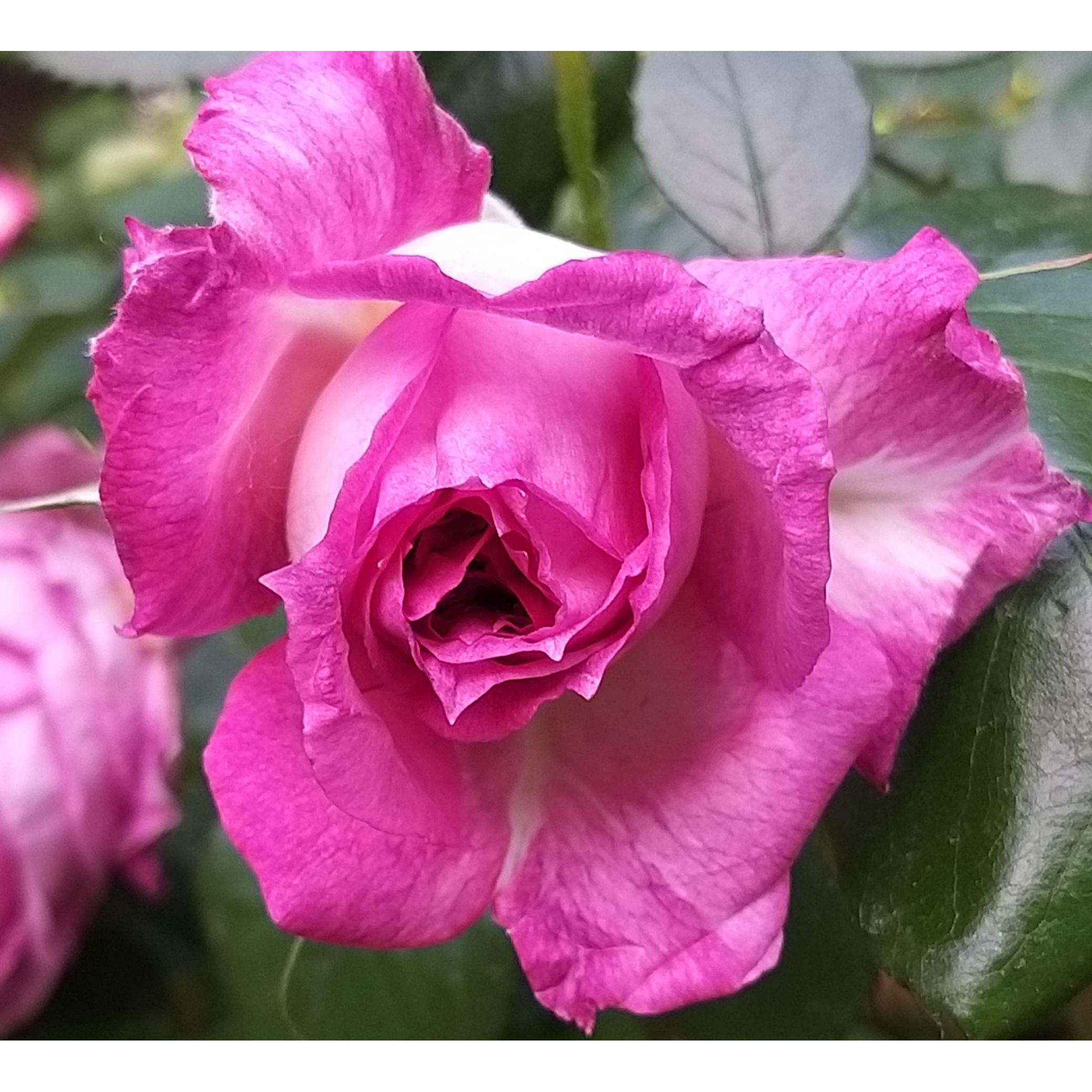
Thierry P.

Flowering in May - image 9 - Close to the rose "Renée Van Wegberg".
Thierry P. • 84 FR
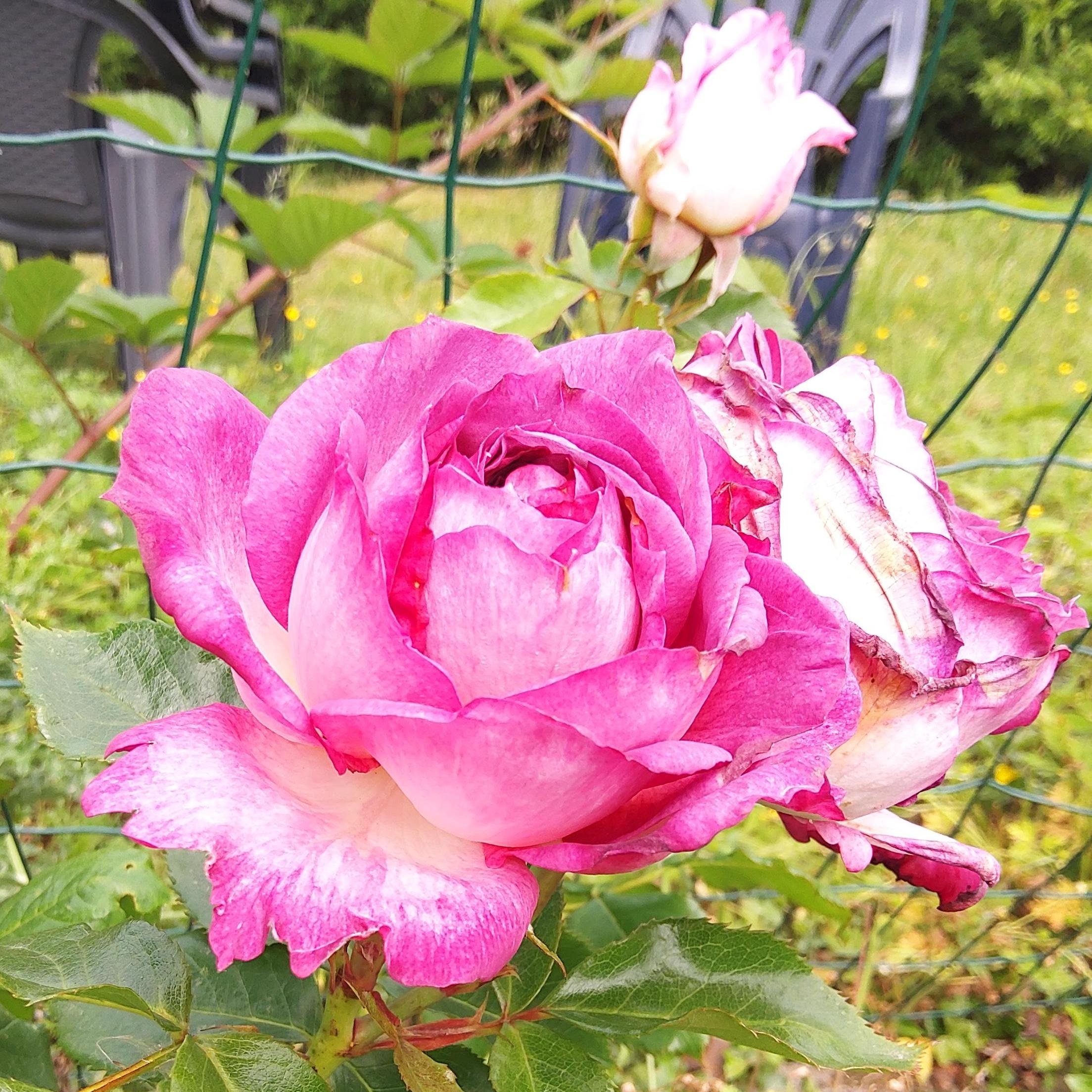
Cedric V.

Cédric
Cedric V. • BE
Rosa Thierry Marx
Rosa Thierry Marx® Delviopar
Young plant in accordance with the website's description. Should have no problem establishing itself." Analyse et correction : "Plant conforme à la présentation du site" -> "Young plant in accordance with the website's description" : La traduction rend bien le sens du texte, en insistant sur le fait que la plante correspond à la description donnée sur le site. "Ne devrait avoir aucun problème pour la reprise" -> "Should have no problem establishing itself" : La traduction rend bien l'idée que la plante ne devrait pas rencontrer de difficultés pour s'implanter. La traduction est correcte sur le plan linguistique et respecte le ton du texte original.
Gilles, 26/05/2023
Special offer!
Receive a €20 voucher for any order over €90 (excluding delivery costs, credit notes, and plastic-free options)!
1- Add your favorite plants to your cart.
2- Once you have reached €90, confirm your order (you can even choose the delivery date!).
3- As soon as your order is shipped, you will receive an email containing your voucher code, valid for 3 months (90 days).
Your voucher is unique and can only be used once, for any order with a minimum value of €20, excluding delivery costs.
Can be combined with other current offers, non-divisible and non-refundable.
Home or relay delivery (depending on size and destination)
Schedule delivery date,
and select date in basket
This plant carries a 6 months recovery warranty
More information
We guarantee the quality of our plants for a full growing cycle, and will replace at our expense any plant that fails to recover under normal climatic and planting conditions.

Description
Rosa Thierry Marx, named in honour of the famous Michelin-starred chef, combines the charm and fragrance of old-fashioned roses with the floribundity of modern roses. Beyond its ornamental qualities, it is a vigorous variety that is resistant to diseases. Its roses display a truly magnificent colour, with shades ranging from deep pink-violet at the centre to pale lilac-pink at the edges. Their fragrance matches their beauty, and is dominated by citrus notes. This bush rose will be appreciated in the garden for its robustness. Its flowers are sublime in romantic bouquets.
Rosa Thierry Marx is a floribunda bush rose launched in 2019 by the rosarian Delbard, belonging to the series of roses 'The Grand Scents'. This slightly stiff bushy and upright shrub reaches an average height of 90cm (35in) with a spread of 60cm (24in) at maturity. It has a rapid growth rate. It produces strong, thorny branches that bear beautiful shiny dark green foliage divided into large toothed leaflets. Throughout summer, the plant produces waves of 8cm (3in) flowers, with an imperfect turbinate shape that is characteristic of the hybrid tea rose category. The double flowers consist of 60 satin petals that evolve from deep pink-violet to very light lilac, creating a beautiful gradient from the centre of the flower to the periphery. Their fragrance is pronounced and rich. It features a discreet background note of undergrowth, a typical rose heart note, and a top note composed of lemongrass, grapefruit, and lemon. The flowers are solitary or grouped in small bouquets, carried at the ends of long shoots from the current year or by those that emerge from 2-year-old stems. The roses will continue to bloom if faded flowers are regularly removed. The foliage is disease-resistant under good growing conditions.
As the rosarian Delbard explains about 'The Grand Scents' roses: "Each of these roses has an intense, very personal fragrance, composed of olfactory notes assembled in an original way. Fleeting or more tenacious, flowery or woody, these notes leave an unforgettable trail like a perfume from a high-end brand".
Rosa Thierry Marx is superb in flower beds, in groups of 3 plants, in large monochrome borders, or in combination with white, pink, or purple roses. It also blends well with light shrubs, perennials, and annuals such as paniculate gypsophila, bellflowers, paniculate phlox, or tall foxgloves. It can be displayed in front of a boxwood or yew hedge, or, conversely, surrounded by a miniature hedge or a carefully organised maze, as in Italian or French gardens. One can also plant a climbing herbaceous clematis with blue flowers like Clematis heracleifolia or a Sollya heterophylla in mild climates at its base. Its roses are stunning in bouquets, paired with lilies and hydrangeas in summer or asters in autumn.
Report an error about the product description
Rosa Thierry Marx in pictures
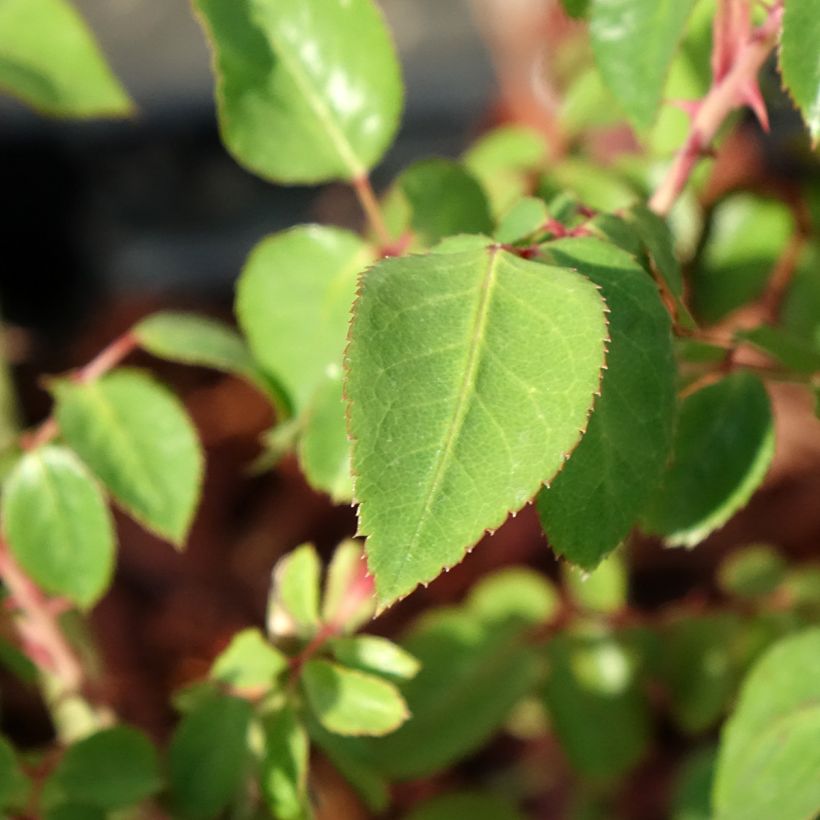

Plant habit
Flowering
Foliage
Botanical data
Rosa
Thierry Marx® Delviopar
Rosaceae
Cultivar or hybrid
Rosa multiflora (4L/5L pot), Rosa canina Laxa (Wrapped bare root)
Planting and care
Plant in a sunny or partically-shaded location. English roses are tolerant, but do not like excessive limestone. They will adapt to any garden as long as the soil is well worked, not too heavy, and sufficiently rich. To plant your rose, work the soil by crumbling it and add fertiliser to the bottom of the planting hole (dried blood or dehydrated horn, for example). Water generously after planting to remove any air pockets. Water regularly for a few weeks to facilitate root growth.
Avoid pruning too short in the first two years.
Roses are often stained or unsightly at the end of summer, but this will not hinder their development. These spots are a natural phenomenon and will not harm the rose.
Planting period
Intended location
Care
-
, onOrder confirmed
Reply from on Promesse de fleurs
Similar products
Haven't found what you were looking for?
Hardiness is the lowest winter temperature a plant can endure without suffering serious damage or even dying. However, hardiness is affected by location (a sheltered area, such as a patio), protection (winter cover) and soil type (hardiness is improved by well-drained soil).

Photo Sharing Terms & Conditions
In order to encourage gardeners to interact and share their experiences, Promesse de fleurs offers various media enabling content to be uploaded onto its Site - in particular via the ‘Photo sharing’ module.
The User agrees to refrain from:
- Posting any content that is illegal, prejudicial, insulting, racist, inciteful to hatred, revisionist, contrary to public decency, that infringes on privacy or on the privacy rights of third parties, in particular the publicity rights of persons and goods, intellectual property rights, or the right to privacy.
- Submitting content on behalf of a third party;
- Impersonate the identity of a third party and/or publish any personal information about a third party;
In general, the User undertakes to refrain from any unethical behaviour.
All Content (in particular text, comments, files, images, photos, videos, creative works, etc.), which may be subject to property or intellectual property rights, image or other private rights, shall remain the property of the User, subject to the limited rights granted by the terms of the licence granted by Promesse de fleurs as stated below. Users are at liberty to publish or not to publish such Content on the Site, notably via the ‘Photo Sharing’ facility, and accept that this Content shall be made public and freely accessible, notably on the Internet.
Users further acknowledge, undertake to have ,and guarantee that they hold all necessary rights and permissions to publish such material on the Site, in particular with regard to the legislation in force pertaining to any privacy, property, intellectual property, image, or contractual rights, or rights of any other nature. By publishing such Content on the Site, Users acknowledge accepting full liability as publishers of the Content within the meaning of the law, and grant Promesse de fleurs, free of charge, an inclusive, worldwide licence for the said Content for the entire duration of its publication, including all reproduction, representation, up/downloading, displaying, performing, transmission, and storage rights.
Users also grant permission for their name to be linked to the Content and accept that this link may not always be made available.
By engaging in posting material, Users consent to their Content becoming automatically accessible on the Internet, in particular on other sites and/or blogs and/or web pages of the Promesse de fleurs site, including in particular social pages and the Promesse de fleurs catalogue.
Users may secure the removal of entrusted content free of charge by issuing a simple request via our contact form.
The flowering period indicated on our website applies to countries and regions located in USDA zone 8 (France, the United Kingdom, Ireland, the Netherlands, etc.)
It will vary according to where you live:
- In zones 9 to 10 (Italy, Spain, Greece, etc.), flowering will occur about 2 to 4 weeks earlier.
- In zones 6 to 7 (Germany, Poland, Slovenia, and lower mountainous regions), flowering will be delayed by 2 to 3 weeks.
- In zone 5 (Central Europe, Scandinavia), blooming will be delayed by 3 to 5 weeks.
In temperate climates, pruning of spring-flowering shrubs (forsythia, spireas, etc.) should be done just after flowering.
Pruning of summer-flowering shrubs (Indian Lilac, Perovskia, etc.) can be done in winter or spring.
In cold regions as well as with frost-sensitive plants, avoid pruning too early when severe frosts may still occur.
The planting period indicated on our website applies to countries and regions located in USDA zone 8 (France, United Kingdom, Ireland, Netherlands).
It will vary according to where you live:
- In Mediterranean zones (Marseille, Madrid, Milan, etc.), autumn and winter are the best planting periods.
- In continental zones (Strasbourg, Munich, Vienna, etc.), delay planting by 2 to 3 weeks in spring and bring it forward by 2 to 4 weeks in autumn.
- In mountainous regions (the Alps, Pyrenees, Carpathians, etc.), it is best to plant in late spring (May-June) or late summer (August-September).
The harvesting period indicated on our website applies to countries and regions in USDA zone 8 (France, England, Ireland, the Netherlands).
In colder areas (Scandinavia, Poland, Austria...) fruit and vegetable harvests are likely to be delayed by 3-4 weeks.
In warmer areas (Italy, Spain, Greece, etc.), harvesting will probably take place earlier, depending on weather conditions.
The sowing periods indicated on our website apply to countries and regions within USDA Zone 8 (France, UK, Ireland, Netherlands).
In colder areas (Scandinavia, Poland, Austria...), delay any outdoor sowing by 3-4 weeks, or sow under glass.
In warmer climes (Italy, Spain, Greece, etc.), bring outdoor sowing forward by a few weeks.































